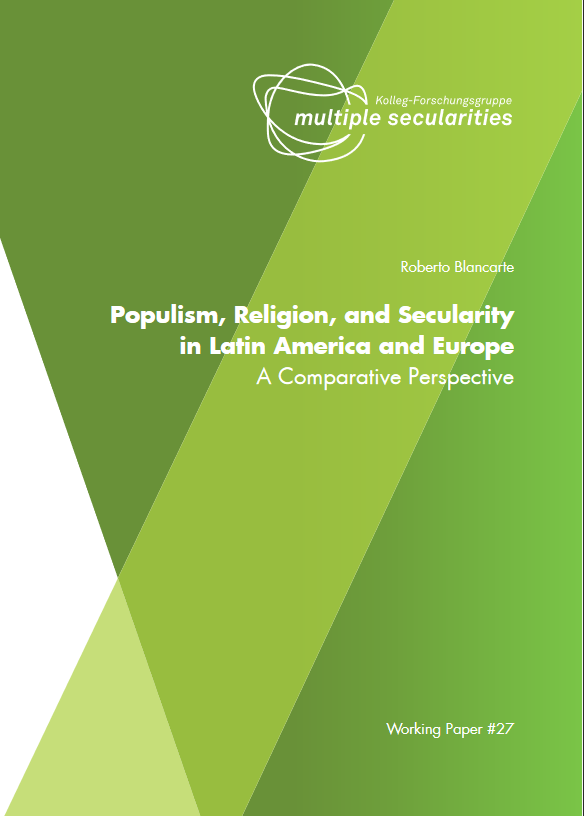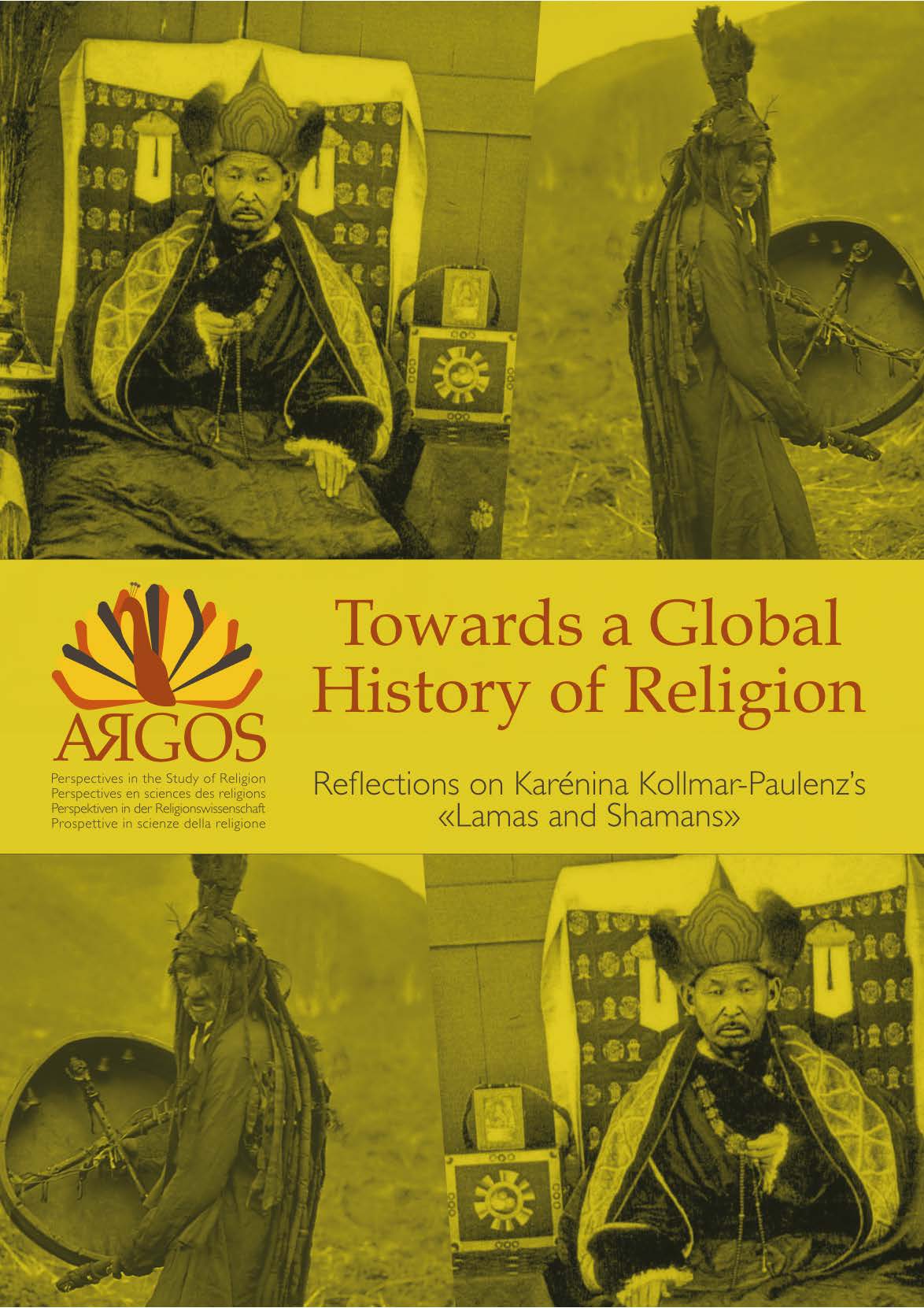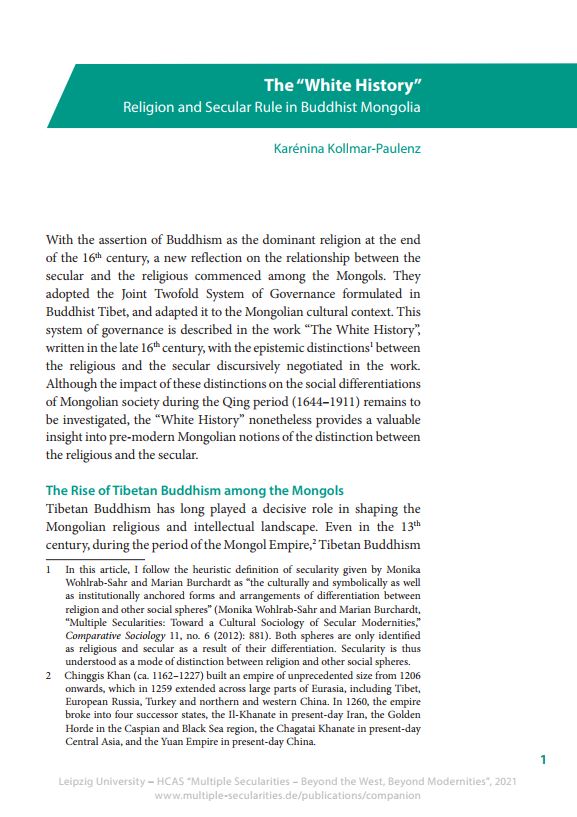
Publications
The work of the research group finds its expression in various publication formats. In addition to monographs, edited volumes and articles by individual members of the research group, we also make (preliminary) research results available for academic discourse in the form of working papers.
Furthermore, with the Companion to the Study of Secularity, the research group is pursuing a long-term, collaborative publication project that aims to make research on phenomena of the conceptual distinction and structural differentiation of "religion" accessible to a larger academic audience and thus to contribute to opening up a new field of research and facilitating interdisciplinary exchange.
Working papers as well as entries for the Companion to the Study of Secularity are reviewed by at least two peers from the research group prior to publication.


 Much has been written in the past few decades about populism that most scholars approaching the subject feel obliged to begin by justifying their writing of yet another text. In this paper, the situation is somewhat different: whilst our analytical gaze is cast upon populism (and fascism, as a precursor or closely related social phenomenon), this is only indirectly the case. Our primary focus is, instead, on the relationship that populism has with religion and secularity. Or, more precisely, the relationships of diverse populisms with different religiosities and various secularities. While the religious and the secular are mentioned in numerous studies about populism, these topics have rarely been adequately elaborated. Even when they are discussed, they are treated only in a marginal way. The purpose of this work is, therefore, to highlight the complex and multi-faceted way that populisms in Europe and Latin America have related to religion and religiosity. A second, parallel objective of this work is to reflect on the particular relationships populism establishes with different understandings of the secular, specifically within the political sphere, i.e. ‘political secularity.’ Following the differentiation paradigm, another term one might see used for this is ‘laicity’ (laïcité in French, laicidad in Spanish). I understand this to refer specifically to the secularisation of the state and the areas of society which come under its control.
Much has been written in the past few decades about populism that most scholars approaching the subject feel obliged to begin by justifying their writing of yet another text. In this paper, the situation is somewhat different: whilst our analytical gaze is cast upon populism (and fascism, as a precursor or closely related social phenomenon), this is only indirectly the case. Our primary focus is, instead, on the relationship that populism has with religion and secularity. Or, more precisely, the relationships of diverse populisms with different religiosities and various secularities. While the religious and the secular are mentioned in numerous studies about populism, these topics have rarely been adequately elaborated. Even when they are discussed, they are treated only in a marginal way. The purpose of this work is, therefore, to highlight the complex and multi-faceted way that populisms in Europe and Latin America have related to religion and religiosity. A second, parallel objective of this work is to reflect on the particular relationships populism establishes with different understandings of the secular, specifically within the political sphere, i.e. ‘political secularity.’ Following the differentiation paradigm, another term one might see used for this is ‘laicity’ (laïcité in French, laicidad in Spanish). I understand this to refer specifically to the secularisation of the state and the areas of society which come under its control.

 With the assertion of Buddhism as the dominant religion at the end of the 16th century, a new reflection on the relationship between the secular and the religious commenced among the Mongols. They adopted the Joint Twofold System of Governance formulated in Buddhist Tibet, and adapted it to the Mongolian cultural context. This system of governance is described in the work “The White History”, written in the late 16th century, with the epistemic distinctions between the religious and the secular discursively negotiated in the work. Although the impact of these distinctions on the social differentiations of Mongolian society during the Qing period (1644–1911) remains to be investigated, the “White History” nonetheless provides a valuable insight into pre-modern Mongolian notions of the distinction between the religious and the secular.
With the assertion of Buddhism as the dominant religion at the end of the 16th century, a new reflection on the relationship between the secular and the religious commenced among the Mongols. They adopted the Joint Twofold System of Governance formulated in Buddhist Tibet, and adapted it to the Mongolian cultural context. This system of governance is described in the work “The White History”, written in the late 16th century, with the epistemic distinctions between the religious and the secular discursively negotiated in the work. Although the impact of these distinctions on the social differentiations of Mongolian society during the Qing period (1644–1911) remains to be investigated, the “White History” nonetheless provides a valuable insight into pre-modern Mongolian notions of the distinction between the religious and the secular.